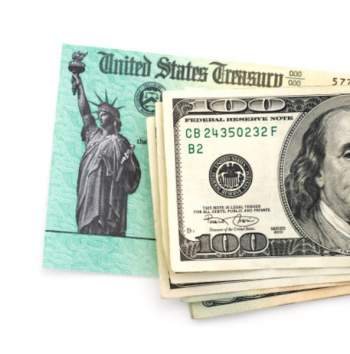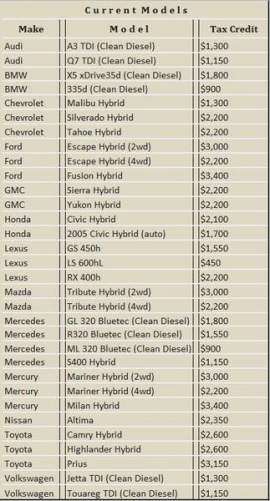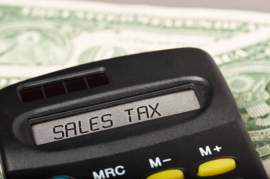
North Dakota Tax

FULL List to North Dakota Tax Forms
Individual Income Tax Forms
Form 28249 Request for Copies of Tax Returns
Corporate Income Tax Forms
Form 40X Amended Corporation Income Tax Return
Sales Tax Forms
Form ST Sales Use and Gross Receipt Tax
Primary Concerns:
While many states have been faced with dire circumstances in terms of budget deficits in the aftermath of the economic crisis, North Dakota has been an extremely rare exception.
In 2009, North Dakota not only had no budget problems, but had a notable budget surplus, due to effective collections of income taxes. As a result, while many states were trying to reassess their North Dakota law on tax to try to increase revenue or slash budgets toward something that could be much more manageable, North Dakota actually decreased both its income and property taxes.
What made North Dakota such a success story in harsh economic climate? The answer lies in many of the particularities specific to the state. North Dakota's population has remained fairly flat since the great depression, with a total population of about 700,000 spread over a sizable geographic area. The unemployment rate is only 4.3%, the lowest in the nation by a considerable margin.
The state therefore, has more of its population working and paying taxes more than any other state, and thus also has to pay less welfare and unemployment than any other state. Also, because of its fairly sparse population centers, the state does not require a comprehensive infrastructure that can quickly drain a state's financial reserves.
Many observer, especially those who support nationalized banking can also point to the fact that the Bank of North Dakota is a state funded bank performing many of the operations of any regular commercial bank.
However, much of the answer to North Dakota's financial prosperity still lies in its relatively unique economic construction, which, provided there are no dramatic influxes of people moving to the state, should lead to many years of continued prosperity, even in the face of a harsh economic climate.
Income Tax:
Any individuals in North Dakota who reside in North Dakota and earn income either in the state or out of it, are required to file a North Dakota state income tax return.
Individuals who reside only part time in the state are required to file a North Dakota state income tax return if they draw income from within the state. The rates of taxation in North Dakota are progressive with staggered brackets of taxation.
For single taxpayers making $34,000 or less, the rate of taxation is 1.84% of the total income. Between $34,000 and $82,400, the rate is $625.60 (or 1.84% or $34,000) plus 3.44% of all excess income over the bracket base of $34,000. Therefore, if an individual made $50,000 in North Dakota in a given year, they will pay $625.60 for the first $34,000 and 3.44% on the remaining $16,000 (or $550.40).
Between $82,400 and $171,850 the tax is $2,290.56 plus 3.81% over the bracket base. Between $171,850 and $373,650 the tax is $5,698.61 plus 4.42% over the base. Over $373,650, the tax is $14,618.17 and 4.86% of the excess over the base.
For married couples filing jointly or qualified surviving spouses, the rates remain the same, but the bracketing is different. Couples making $56,850 or less, the rate is 1.84% of total income. Between $56,850 and $137,300, the tax is $1,046.04 plus 3.44% over the base.
Between $137,300 and $209,250, the tax is $3,813.52 with 3.81% of excess over the base. Between $209,250 and $373,650 the tax is $6,554.82 plus 4.42% over the base. Over $373,650 the tax is $13,821.30 with 4.86% of excess over the top base.
For heads of household making less than $45,550, the rate remains 1.84%. Between $45,550 and $117,650 the tax is $838.12 with 3.44% of the excess over the base. Between $117, 650 and $190,550 the tax is $3,318.36 with 3.81% of excess over the base.
For those making between $190,550 and $373,650 the tax is $6,095.85 plus 4.42% of the excess over the base. Finally, those making over $373,650 the tax is $14,188.87 plus 4.86% of the excess over the base.
And finally, for married people filing separately making less than $28,425 pay 1.84% of their income, while those making between $28,425 and $68,650 pay the tax of 523.02 with 3.44% of excess over the base.
Between $68,650 and $104,625 the tax is $1,906.76 plus 3.81% of excess over the base, and between $104,625 and $186,825 the tax is $3,277.41 plus 4.24% of excess over the base. And for married people filing separately making over $186,825, the tax is $6,910.65 plus 4.86% of excess over the top base.
Corporate Income Tax:
Corporate Income Tax in North Carolina is applied to nearly all business operating in the state, who either reside there or draw income from inside the state. The tax rate is a progressive rate staggered in three brackets.
Corporations making less than $25,000 have to pay a tax of 2.10% on their income. Those making between $25,000 and $50,000 must pay a tax of $525 (2.10% of $25,000) plus 5.25% on any excess over the $25,000 bracket base. Corporations making over $50,000 must pay a tax of $1,837.50 plus 6.40% on all excess income over $50,000.
North Dakota also offers a very lucrative corporate incentive to businesses that qualify for an exemption granted by the State Board of Exemption. This incentive, if approved, gives new corporations that base themselves in North Dakota five years of exemption on corporate income taxes.
Property Tax:
All real property in North Dakota is subject to property tax, including mobile homes that serve a residential and commercial purpose.
There are also differentiations made for property that is agricultural in nature (farmland) and Native American tribal lands, with some exemptions instituted for those groups. Property taxes are assessed on a county to county basis, and bases on county rates.
Many corporations pay other taxes in lieu of property taxes, Cooperative-Owned transmission lines pay $225 per mile. Rural electric cooperatives pay a Gross Receipts Tax on all of their earnings, which is 1% for the first five years in existence, and then 2% for every year afterward.
Telecommunications companies pay a 2.5% Gross Receipts Tax for all property used in service of two way communications.
Personal property is exempt from property tax in North Dakota.
Sales Tax:
North Dakota uses a Gross Receipts Tax system in lieu of a sales tax, with the state rate being 5%. Gross Receipts Taxes tax the vendors of taxable products instead of the customers, though the vendors nearly always pass the tax on to the customer.
This rate can be increased on a county to county basis. Unprepared food and prescription drugs are exempt from sales tax.
North Dakota implements a 7% Gross Receipts Tax on all alcoholic purchases, either sold for on or off premises consumption. The tax on new farm machinery and irrigation equipment used for agriculture is 3%. The motor vehicle excise tax is 5%.
NEXT: Ohio State Tax




















